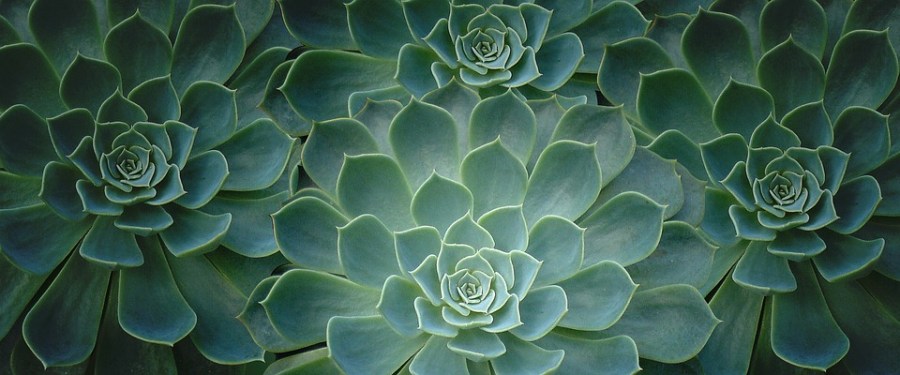How to Grow Your First Succulent Garden

Many Americans have taken to planting succulents in their gardens, especially in drier climates such as the South West. Succulents grow well even when the availability of water is limited. This makes them a match for cities like Austin, Texas or Tucson, Arizona, where dry conditions prevail.
Succulents are plants that have unusually thick leaves and stems specially developed to store water for long periods of time. They survive even in desert conditions where they may only get moisture from morning dew.
Visually, succulents offer opportunities for beautiful space decoration. There are succulents in every conceivable hue ranging from green and purple to white, making it possible to create an eye-catching garden arrangement.
The Best Succulent Species for Beginners
If you are new to succulents, it’s best to begin with a beginner friendly type of plant. One of the best succulents for beginners is the Panda Plant. The Panda Plant is so named because its leaves look like the pointy ears of a panda. You can create a visually powerful effect for your garden with several of these plants lined up in hanging baskets. It’s a small plant, so you will need a container for it.
Another beginner-friendly succulent is the Echeveria plant. This succulent is appropriate if you want a succulent that can match the good looks of a flower garden. That is because Echeveria has pretty spirals that look like giant roses. They come in bright colors such as pink, white, and blue.
Where to Buy Succulent Plants
To get started with your succulent garden, it’s best to buy potted plants from a garden center near you that sells potted plants. You can also try big retail stores for homeowners such as the Home Depot or Walmart’s plants section.
It’s often cheaper to buy your succulents in package deals. For instance, some plant retailers will offer package deals of assorted succulent plants priced at $20 or $50. Another option to get succulents on the cheap is to ask for cuttings from a friend who already has the type of succulent you are interested in growing. If you can’t find a supplier of potted plants or cuttings near you, you can order from major online retailers such as Amazon.
How to Plant Succulents
Planting potted succulents is one of the easiest ways to plant your garden. You can buy potted plants that are set in the coarse grained sand that performs well for succulents, then add compost and fertilizer as needed. In the beginning, water the plants when you see that the soil has dried out.
An alternative way is to use cuttings. First prepare the soil. It’s best to mix gravel, compost and sand together to create a gentle but loose base for your cuttings. Soil that is too thick will likely retain too much water and kill the succulents before they grow. Plant the cuttings in the soil and cover the sides until the cuttings are firmly bound.
Watering and Care Tips
Your succulent plants can endure harsh and dry conditions without drying up. However, to keep them in health, water the entire garden, giving plenty of water to each plant, at least once every two weeks. Note, however, that succulents require the top layer of soil to be completely dry before each successive watering. In the presence of excess water, the plant’s roots could fail to dry out sufficiently and begin to rot in place. Avoid planting your succulents in the shade of some other plant or tree as this can deprive them of necessary sunlight.
Safety Tips for Succulent Gardening
If you have allergies, you should exercise extra caution around succulents. Likewise, you should keep pets away from your succulents since some succulents, such as aloes, are poisonous to certain pets.
Watch out for succulents with big, sharp spikes. These cacti can cause grievous bodily harm if you should accidental run into them. Keep them away from garden paths where visitors or children can unwittingly bump into them. If you have spiky cacti, it’s preferable to shield them behind a garden wall or fence, which serves as a warning to those who are new to your garden.





